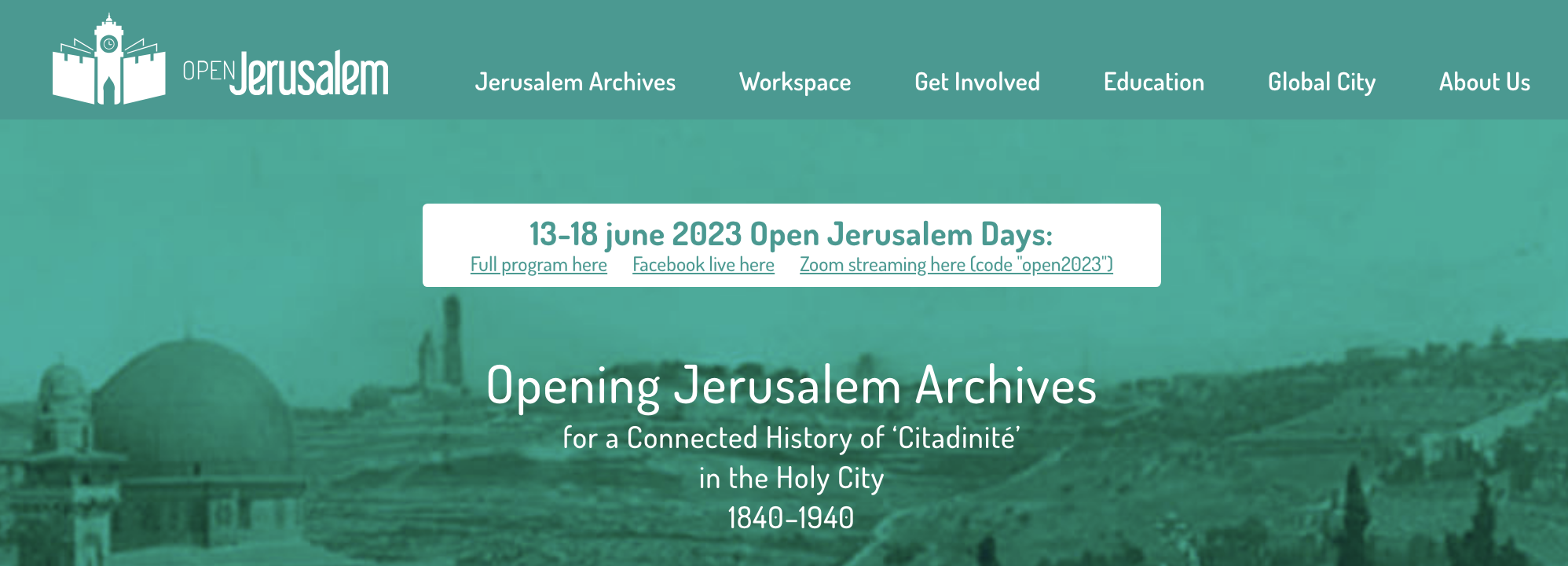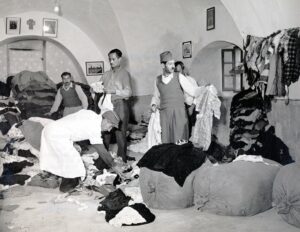The School is pleased and proud to be a partner in the forthcoming travelling symposium : Open Jerusalem Days. This is the first event organised in Palestine and East Jerusalem, open to researchers and the general public, for this European project launched in 2014.
This travelling conference, initiated by Vincent Lemire, will take place from 13 to 18 June.
The idea of itinerancy makes sense,” he says. “We’re going to move around during this conference like we move around an archipelago, with the idea of connecting the heterogeneous, just as we move around the world thanks to Open Jerusalem, to access all the existing archives beyond borders.
A dozen events will take place over 5 days, in Gaza on the 13th, Birzeit University on the 14th, then the Franco-German Institute in Ramallah, the American Colony on the 15th, then the French Consulate General, the Custody on the 16th, where the EBAF will be present, and the Khalidi Library in the Old City on the 17th. On the 17th, an evening event will be held at the Institut Châteaubriand, in partnership with the Educational Bookshop and EBAF, on the links between publications and archives.
The symposium will close on 18 June at the Institut Romain Gary. “This event reflects the project, which is also aimed at the general public. This means adapting all the media and all the channels”.
The organisation of this event gives its instigator the opportunity to talk to us about its history.
“The project was initiated in 2012 and officially funded by the European Union from 2014. I started from a very simple observation: when I was writing my thesis and some of my books, I felt blocked in my possibilities for progress. I realised that some of the information and documents were not accessible to researchers.
Obviously, these are extremely sensitive archives, sometimes with a very strong legal function, such as property deeds…”.
Despite the difficulty and the extreme sensitivity of the subject, Vincent is forging ahead and not giving up.
“As my research progressed, I also discovered that a large proportion of the archives on Jerusalem are to be found outside Jerusalem, in Amman, New York, Saint Petersburg, Athens, Rome… We wanted to connect the local archives we have here with those scattered around the world as a result of population movements and institutional logics”.
To achieve this, the project relies on a core team made up of Maria Chiara Rioli, Angelos Dalachanis, Stéphane Ancel, Yasemin Avci, Leyla Dakhli, Abdulhameed al-Kayyali, Falestin Naïli and Yann Potin.
“The idea, by connecting these different documentary pools, is also to connect the teams working on them. Today, Open Jerusalem is present in around fifteen countries, lists a dozen languages, 5 or 6 alphabets and more than a hundred conservation institutions”.
The aim of this platform is to link researchers together, not to lock them into their own documentary niche, to unlock and interconnect archives, and therefore also narratives and points of view…”.
And this desire takes on its full meaning in a context like that of Jerusalem, and more broadly of this region.
“The reach of digital humanities is much greater here, and some students and researchers are completely unable to physically access this documentation, as travel can be very difficult, if not impossible, in this region. Today, Open Jerusalem has more than 40,000 documents available online. So the platform is having a very real impact, making it easier to do research in this difficult terrain.
Click here for all the information you need to take part in Open Jerusalem Days 2023!

